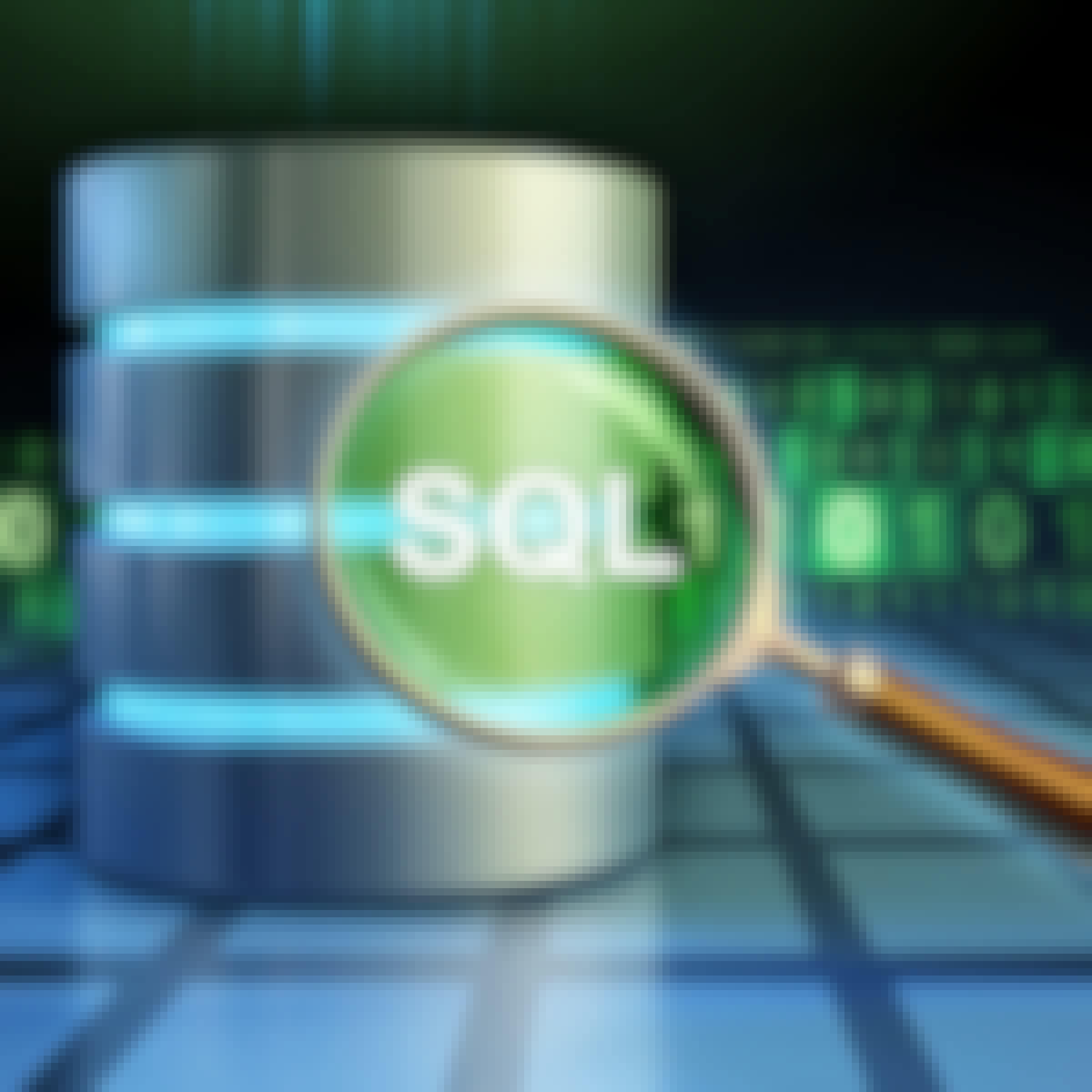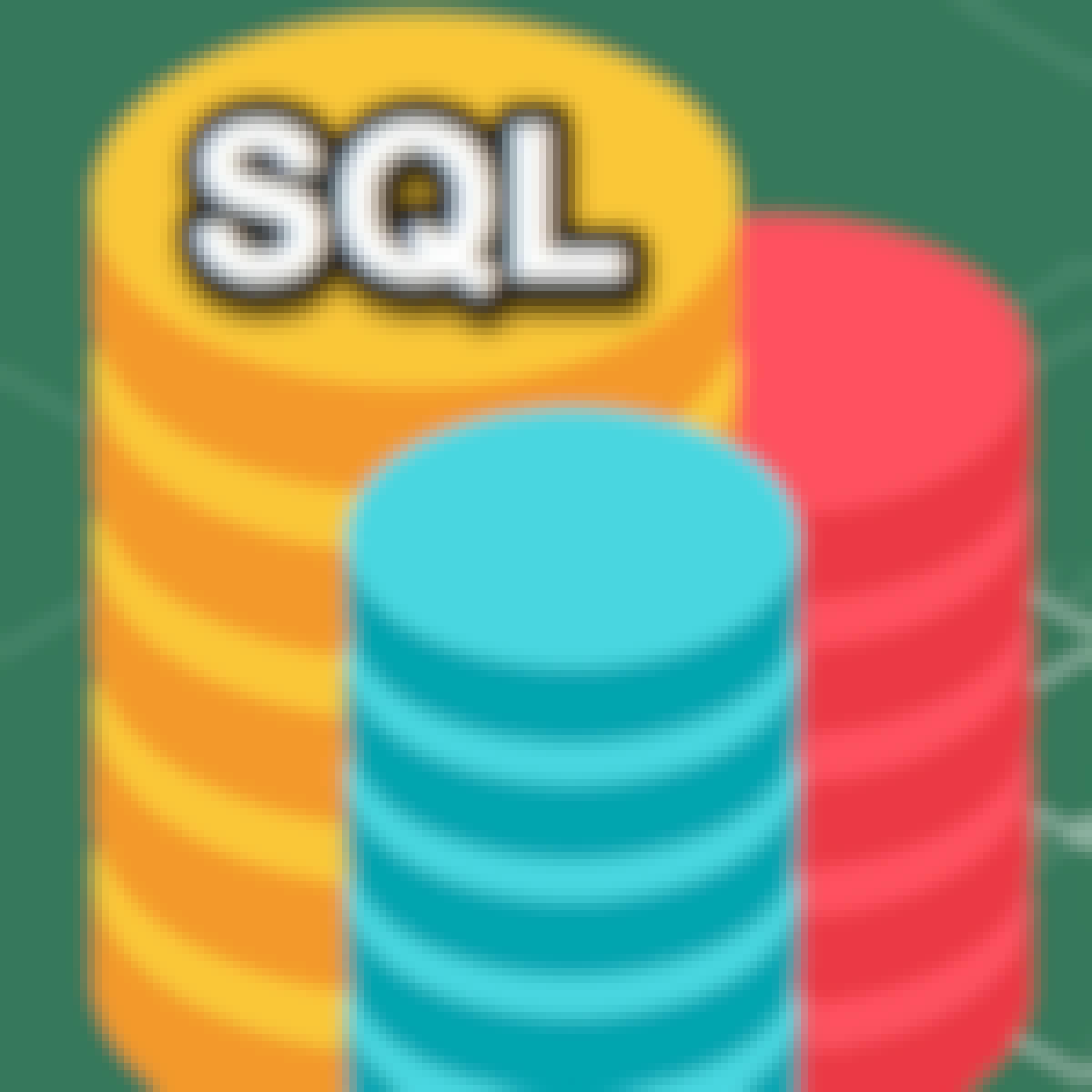Filter by
SubjectRequired
LanguageRequired
The language used throughout the course, in both instruction and assessments.
Learning ProductRequired
LevelRequired
DurationRequired
SkillsRequired
SubtitlesRequired
EducatorRequired
Explore the SQL Server Course Catalog


Skills you'll gain: SQL, MySQL, Microsoft SQL Servers, Relational Databases, Oracle Databases, Databases, Query Languages, IBM DB2, Database Management Systems, Stored Procedure, Cloud Applications, Data Analysis, Data Manipulation, Transaction Processing
 Status: NewStatus: Free
Status: NewStatus: Free
Coursera Instructor Network
Skills you'll gain: Microsoft SQL Servers, Performance Tuning, SQL, Database Management, Stored Procedure, Database Design, Operational Databases, Database Development, Query Languages, System Monitoring, Network Troubleshooting


Microsoft
Skills you'll gain: Database Systems, Microsoft Azure, Databases, Relational Databases, MySQL, SQL, Database Management, Cloud Services, PostgreSQL, Data Storage Technologies, Data Security
 Status: New
Status: New
Coursera Project Network
Skills you'll gain: Database Design, Relational Databases, Database Development, Microsoft SQL Servers, SQL, Database Management, Databases, Business Requirements, Web Applications
 Status: AI skills
Status: AI skills
Microsoft
Skills you'll gain: Data Storytelling, Dashboard, Excel Formulas, Extract, Transform, Load, Power BI, Data Analysis Expressions (DAX), Microsoft Excel, Microsoft Copilot, Data Modeling, Data-Driven Decision-Making, Star Schema, Data Analysis, Data Presentation, Data Visualization Software, Spreadsheet Software, Data Validation, Interactive Data Visualization, Data Transformation, Data Cleansing, Data Storage
What brings you to Coursera today?


University of Michigan
Skills you'll gain: Database Design, SQL, MySQL, Relational Databases, Databases, Data Modeling, Development Environment, PHP (Scripting Language), Software Installation


University of California, Davis
Skills you'll gain: Data Governance, Presentations, Data Cleansing, Feature Engineering, SQL, Apache Spark, A/B Testing, Distributed Computing, Descriptive Statistics, Data Lakes, Data Quality, Data Storytelling, Data Analysis, Peer Review, Exploratory Data Analysis, Data Manipulation, Data Pipelines, Databricks, Database Design, Query Languages

Skills you'll gain: SQL, Databases, Stored Procedure, Relational Databases, Database Design, Query Languages, Database Management, Data Analysis, Jupyter, Data Manipulation, Pandas (Python Package), Transaction Processing

Skills you'll gain: MySQL, Database Design, Version Control, Database Management Systems, Database Management, MySQL Workbench, Extract, Transform, Load, Data Modeling, Data Structures, SQL, Unix Commands, Relational Databases, Databases, Git (Version Control System), Database Systems, Stored Procedure, Object Oriented Programming (OOP), Unit Testing, Algorithms, Django (Web Framework)
 Status: New
Status: NewSkills you'll gain: Data Warehousing, SQL, Extract, Transform, Load, Apache Airflow, Web Scraping, Linux Commands, Database Design, Database Administration, MySQL, Data Pipelines, Apache Kafka, Database Management, Bash (Scripting Language), Shell Script, Database Architecture and Administration, Data Transformation, Data Store, IBM DB2, Jupyter, Generative AI


University of California, Davis
Skills you'll gain: Data Governance, SQL, Data Quality, Database Design, Query Languages, Data Manipulation, Data Modeling, Relational Databases, Data Analysis, Data Cleansing
SQL Server learners also search
In summary, here are 10 of our most popular sql server courses
- SQL: A Practical Introduction for Querying Databases: IBM
- Microsoft SQL Server: Performance Tuning Essentials: Coursera Instructor Network
- Microsoft Azure SQL: Microsoft
- SQLServer for Beginners: Database Design & CRUD Operations: Coursera Project Network
- Microsoft Power BI Data Analyst: Microsoft
- Introduction to Structured Query Language (SQL): University of Michigan
- Learn SQL Basics for Data Science: University of California, Davis
- Databases and SQL for Data Science with Python: IBM
- Meta Database Engineer: Meta
- IBM Relational Database Administrator: IBM












